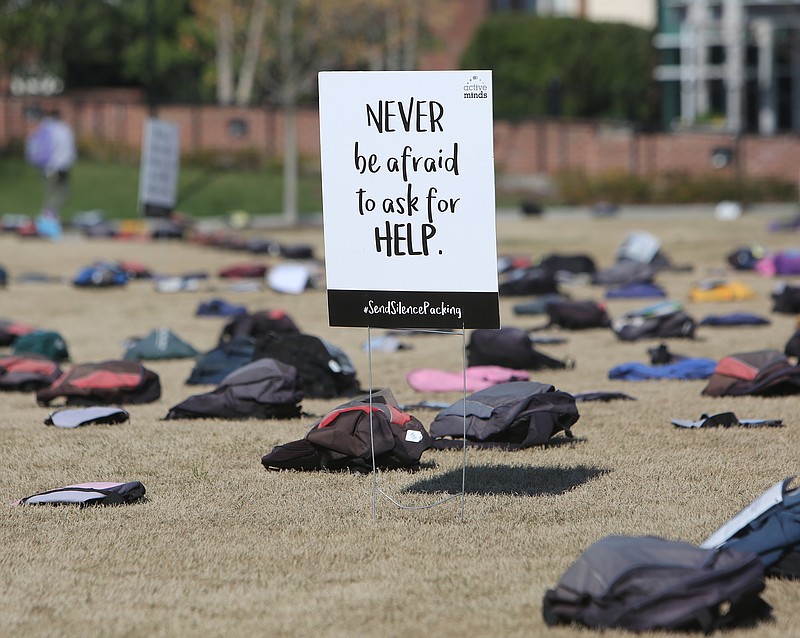Tennessee will receive more than $53 million in additional funding from the federal government to address mental health and addiction treatment needs driven by the COVID-19 pandemic, state officials announced Thursday.
The funding - which is part of a $3 billion allocation for mental health services included in the recently signed American Rescue Plan - will add more than $27 million to mental health services and nearly $26 million to treat substance use disorder services in the state over the next four years, according to a news release from the state.
It represents the latest influx of state and federal dollars to the Tennessee Department of Mental Health and Substance Abuse Services since the start of the pandemic. The department has already received $55 million in federal COVID-19 relief funds, and Gov. Bill Lee and the Tennessee General Assembly increased the department's budget for the next fiscal year by more than $44.1 million, according to the release.
"With the outpouring of support for mental health and substance use needs in our state, we have a priceless opportunity to bring about significant change and make a difference for Tennesseans who are struggling. The mental health and substance use impacts brought on by the stresses of the pandemic are with us, and these generous investments at both the state and federal levels are going to make sure we and our community behavioral health providers can continue to rise to meet the need," Marie Williams, commissioner of the department, said in the release. "We are tremendously grateful to our amazing network of providers across the state who answer the call and respond with compassionate care to help people find new lives in recovery."
Spokesperson Matthew Parriott said by email that department officials are still deciding how to distribute the latest funds, but they "anticipate numerous agencies who serve the Chattanooga community" will receive a share.
Officials said they plan to use the funds to "expand the availability of evidence-based treatment services, strengthen the statewide network of crisis services, support the continued and expanded use of telehealth services, respond to the unique needs of children and more."
A recent U.S. Centers for Disease Control and Prevention survey found that Tennesseans self-reported symptoms of anxiety and depression at rates of over 40% during the pandemic, which the news release states is "more than double the normal prevalence of any mental illness in a given year."
This week, the American Medical Association released an issue brief about a nationwide increase in drug overdoses during the COVID-19 pandemic and calling for policy reform to address the crisis.
In 2020, a record 160 Hamilton County residents are reported to have died from overdoses and drug-related deaths, representing a 50% increase over the prior year's overdose deaths, according to preliminary data from the Hamilton County Medical Examiner's office.
The deaths are largely attributed to the ongoing opioid epidemic, but instead of in the early days when prescription drugs were the main culprit, the crisis is now fueled by the highly potent synthetic opioid fentanyl.
Contact Elizabeth Fite at efite@timesfreepress.com or follow her on Twitter @ecfite.
